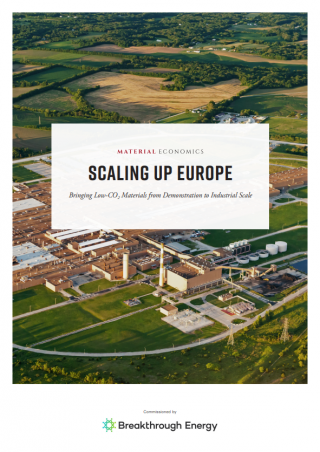Scaling up Europe
Energy-intensive industries are a key piece of the puzzle as Europe seeks to transition to an economy with net zero greenhouse gases. Decarbonising the production of key materials – steel, cement, chemicals and more – is crucial for achieving EU climate targets, and also for the EU’s industrial competitiveness and strategic autonomy.
With thousands of companies worldwide adopting ambitious climate targets, this is also an enormous economic opportunity: we estimate the global market for low-CO2 materials could reach 100 USD billion by 2030.
This study takes the pulse of clean technology development in EU heavy industries and finds significant momentum. Some 70 projects are already underway to commercialise breakthrough technologies in steel, chemicals and cement/concrete production. Just five key innovations could reduce CO2 emissions in those industries by 70%.
European companies now lead in this space – but critical investment decisions still have to be made, and cleantech pioneers say the policies and market conditions they need are not yet in place. Drawing on consultations with more than 30 companies and other organisations, we describe the breakthrough projects being advanced by industrial cleantech pioneers in the EU, and the main barriers they face in scaling up. Without proposing specific approaches, we then identify five core policy areas can be woven together to enable low-CO2 materials production to scale up across the EU.
